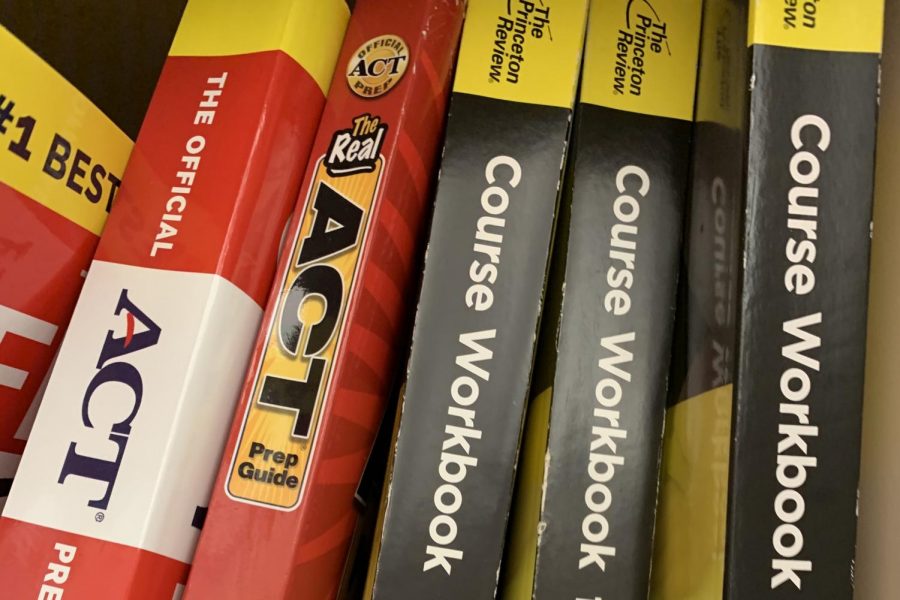English Department Increases Grammar Curriculum To Prepare Students For ACT
The English Department has focused on increasing their classes’ grammar lessons within the past few years.
As the end of October nears, juniors and seniors are preparing for the ACT, and teachers are working to prepare underclassmen students as well. In Nebraska, the ACT has replaced the NESA for state testing in its high schools which has led to several changes. One rule that has changed in Westside, is that English courses are now required to include grammar lessons in their curriculum. Freshman English Instructor Stephanie Heitmann said that grammar lessons were added to the English 1 Honors class two years ago, but now all freshmen have grammar lessons in their English classes.
“The [part of the ACT] that students have been reporting back to us that they struggle with and felt the worst about was the English test, which a lot of that is grammar and usage,” Heitmann said. “That was kind of a hole in our department curriculum anyway. About two or three years ago, Ms. Pueppke and I decided that we were going to pilot that in honors and do it and make sure that it was something that we were giving kids. This year we are doing the same thing for all English 1 classes.”
All English classes at Westside High School have now added grammar to their curriculum, since grammar is a major component in the English section of the ACT. Freshmen have lessons over all of the basic units of grammar that they have to complete and then test over. Freshman Andy Stokes said that in Honors English 1, the grammar unit was more of a self-paced one.
“[The keynote shared with students that included the different lessons] described and helped identify what [type of grammar it was],” Stokes said. “After you feel like you did a sufficient amount of that, you would go to a quiz and then you would take the quiz. Once you got 100%, you [could move onto the next lesson].”
This new change will start having more of an effect as the underclassmen reach their junior year, when they begin to take the ACT. Junior English Instructor Molly Spisak explains what the juniors are currently learning and how they have progressed.
“Some of the language that we have to use to discuss ACT passages is so complex and the students currently don’t have the foundation of understanding in order to get the complexity needed to do well on the ACT,” Spisak said. “This year with juniors, we are giving them those foundations and then moving towards ACT preparation.”
For freshmen, they are learning the basics and starting earlier than most current upperclassmen. Spisak said that she hopes that the freshmen will be better prepared for the ACT.
“Hopefully students who are freshmen now, [get] that foundational understanding of grammar,” Spisak said. “Then, their sophomore year, they will build upon the complexity of their understanding so that by the time they become juniors, we can just begin with ACT passages at the beginning because they will already have a foundation and vocabulary to talk about grammar that they don’t currently have right now.”
Junior Hakim Lotoro said that he thinks it is not unfair that current underclassmen are given more preparation than past underclassmen; he said that it was a necessary change that will help improve scores and provide a better understanding of the test.
“Honestly, I learned more about [grammar] in French than I did in English, [so] I don’t think it’s unfair [that the freshmen are learning it now],” Lotoro said.
Your donation will support the student journalists of Omaha Westside High School. Your contribution will allow us to purchase equipment and cover our annual website hosting costs.

Hi, my name is Charlotte Murphy! I am the social media coordinator for Westside Wired this year. I am currently a senior and this is my fourth year on...












